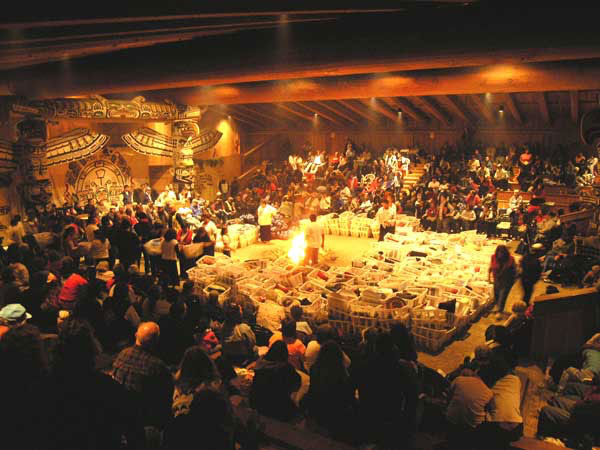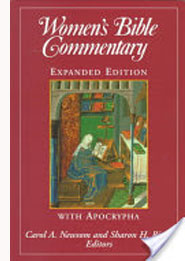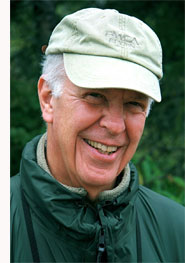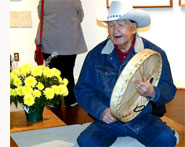
John 2:1-11
January 17, 2016
Year C
Epiphany 2
Jesus knew from the ordinary, the extraordinary comes. To heal a blind man he used dirt and spit; to feed the multitudes he used common bread and fish; to speak of God, he used yeast and seeds. He knew the truth of how the mundane gives way to the miraculous: fill enough jars with water, one of them might turn to wine.
This story from John involves a wedding at Cana, at the wedding a miracle occurs as the result of a woman’s initiative. Jesus was invited to the wedding, he was not the host of the wedding feast, but he was a guest like everyone else. His ministry began at this wedding and on this day, he had the opportunity to be part of the hospitality, which took place in an intimate personal family setting. This hospitality takes the form of a miracle, when he turns the water into wine.
Jesus’ mother was the catalyst for the miracle. When the wine runs out she informs Jesus of this lack of refreshment. The Women’s Bible Commentary says that the conversation between Jesus and his mother is important. When Jesus’ mother speaks to him she asks nothing explicit of him, but Jesus’ response makes it clear that her words implied a request. She assumes that her son can take care of the problem. She tells the servants with utter confidence that Jesus will do something. His mother is the model disciple: she trusts that Jesus will act and allows him to act in freedom.
The miracle that Jesus performs is appropriate to the personal setting of the wedding. Turning water into wine, finding wine for the people gathered is an act of creating abundance. He had the opportunity to return the initial hospitality offered to him. This first act of creating abundance takes place in the presence of family and friends, not in the presence of power and authority.
This opening to Jesus’ ministry shows that the life-giving presence of God/Spirit in our midst is at work even and especially, in the intimate daily places of human lives. He took this opportunity to show people who he is – he shows them what he is capable of, he shows them what is important: things like wedding banquets and hospitality, abundance, action and right relationship.
Parker Palmer, Quaker and theologian, professor at Berkley, California writes extensively about abundance, and the assumption of scarcity. He says that in the human world, abundance does not happen automatically. Abundance is created when we have the sense to choose community, when we come together to celebrate and share our common story. Whether the scarce resource is money, love, power, or words, the true law of life, is that we generate more of whatever seems scarce by trusting its supply and passing it around. Authentic abundance does not lie in secure stockpiles of food, cash, influence, or affection. But, in belonging to a community, where we can share those goods with others who need them – and receive them from others, when we are in need.
Parker Palmer says we have come to this place in our culture, where we focus on scarcity rather than abundance, because of our resistance to community and we fear that if we give everything away, we will have nothing left and then what? Certainly, I am guilty of having way too much stuff. I am willing to share some of my stuff, but not all of it? And really, why wouldn’t I share all of what I have, because in the end, it won’t be mine anyway?
My first glimpse into how this might unfold happened about ten years ago. I did a funeral for a good friend. We had been friends for some time and we both had an art collection. I did the funeral and about a week later I was visiting a local art gallery and at least three quarters of the work he had owned was hanging there for sale. The person who had inherited his work was selling it.
It was in that moment, for the first time that I began to understand what I owned was not mine forever. I only have some vague notion as to what it would mean to give away, let’s say half of what I possess. If I were able to do that it would mean I would have less to worry about, I could rent a smaller place when I retire at the end of June, I could give up my car lease and use public transportation. Hence, I would have more money to support a mission, or charity of my choice. So, it means that our choices create abundance. Will I do that? Not right away, maybe later.
I think I have shared this story with you before, but it is worth re-telling. I re-tell it because Allan Sapp has died, he died December 29, 2015. I believe he grew up and lived on the Red Pheasant Reserve.
The story is very reminiscent of his work. If you know Allan Sapp’s work, I invite you to imagine what a painting of this story would look like.
Marjorie grew up on the Red Pheasant Indian Reserve northwest of North Battleford. This story takes place on a fall day with the leaves turning red and gold, and the sun shone down on the river where Marjorie’s Dad was fishing. All afternoon he fished while Marjorie, her seven brothers and sisters ran and played on the riverbank. Marjorie’s mother spent the day working inside the home, while at the same time, watching seven children. Towards the end of the afternoon the washtub was full of fish. About the same time a wagon pulled into the driveway and a neighbour family piled out to have a visit. They admired the fish, oohing and awhing over them and talking about how many there were and how lovely they looked all piled up one on top of another.
They mentioned that they didn’t know what they would have for supper when they got home. Marjorie’s Dad smiled and he gave the neighbours all of the fish except two. As the neighbours disappeared down the lane Marjorie’s mother came out of the house and made her way to the river bank.
She said to her husband, “What have you done? Why did you give the fish away? I was prepared to can them, and we would eat them in the winter.”
He smiled as he threw his arm over her shoulder, and he said, “There will be enough, we don’t need the fish, you will see, there will be plenty of food for us to eat this winter.”
I saw Marjorie about ten years ago, as we talked and laughed about that day by the river, she said, “Even now after 25 years, I will be watching TV and I will remember that day and I get up and go to my cupboard, and I load up all the cans but two and I take them to the food bank. My father was right, there will always be enough.”
What has to happen before we believe there will always be enough, or that we can turn water into wine? Because we all can be a part of those miracles.
Even while I was writing this sermon, I struggle with the scarcity assumption. It’s easy for me to stare at the blank computer page and despair of ever having another idea, another image and another illustration. It is all too easy to look back at what one has written and say, “That’s not very good, but I better keep it, because it is quite likely nothing else will develop.” It is difficult to trust that the pool of possibilities is bottomless, that the muse will return, or that one can keep diving deep and find more. But the muse does return, we always find more ideas to work with and when we believe that the ideas will never run out, then more and more of everything is possible.
With that notion, when we think it through carefully, comes the realisation that everything is interconnected. One thing leads to another. When we learn how to turn water to wine, then hospitality takes on a new and exciting dimension that could lead to action and to right relationship where we are inclusive of the entire community.
Do we believe that we can be a part of stopping war, violence and hunger?
We have a better chance of being successful, when we believe that abundance is possible. In a capitalist society though, we are taught to believe that there isn’t enough. We live out our lives believing in the assumption of scarcity. We are taught that we never have enough, that to be happy, we must have more.
So I often wonder, if we get caught in places where we don’t want to be.

Potlatch given by Chief Don Svanvik of the Wannock family in 2005 at Alert Bay, British Columbia.
I am reminded of life on Haida Gwaii and the whole idea of Potlatch.
Potlatch went underground when the missionaries abolished it from the culture. But, the idea and how it comes together survived. Quite often Potlatch happens a year after someone has died. This celebration marks the end of grieving, and the family puts a headstone, or a marker at the gravesite. At the Potlatch there is always a huge feast and the family gives gifts to everyone there.
At one time, before colonisation, the family gave away everything they owned because they knew in time they would receive everything back. For the Haida the Potlatch is one of the few spiritual practices that they remember, or understand from their past. There is always a Potlatch when Hereditary Chiefs take over a clan position. Or, when one feels they have to apologise publicly for something. That person hosts a potlatch and in that process he, or she, is forgiven. Potlatch is a way of life, it is a way of caring for one another. It is an opportunity to turn water into wine.
Remember, last week’s readings? Last week a voice came from heaven saying, “You are my child, the beloved and I delight in you.” This week from Isaiah we hear similar words, “You are my delight.”
We are the delight of mother earth; we are the delight of the One who creates, God/Spirit. We are the delight of the entire created order; we are the delight of the abundance of the earth, the moon and the stars, the sea and the forest, the broad prairie landscape that spreads all around us. We are offered in great abundance all we need.
As for turning water into wine, as for performing miracles, I suppose we should start small, but we could start by believing in abundance, we might believe that there will always be enough and we could share all we have by participating in parties and weddings, by being hospitable. Hospitality is the divine work of the people. Hospitality assumes abundance.
We want to emulate Mary, Jesus’ mother, when she shows us how to simply trust that the miracle will happen and really it was nothing at all. We can begin like Jesus did in the company of family and friends and then move on to bigger miracles that involve power and authority.
The really hard part of course is believing that somehow, or other, we will be okay, no matter what. Perhaps that is the biggest miracle of all: to get to that place inside of ourselves, where we can live without fear of not being okay. But if we can understand, that God/Spirit is within and is nurturing us towards miracles, then everything is possible.
The abundant power of the spirit moving through us and out into the community where from the ordinary – the extra-ordinary comes and the mundane gives way to the miraculous. Keep filling your jars with water, one of them will in good time turn to wine.


